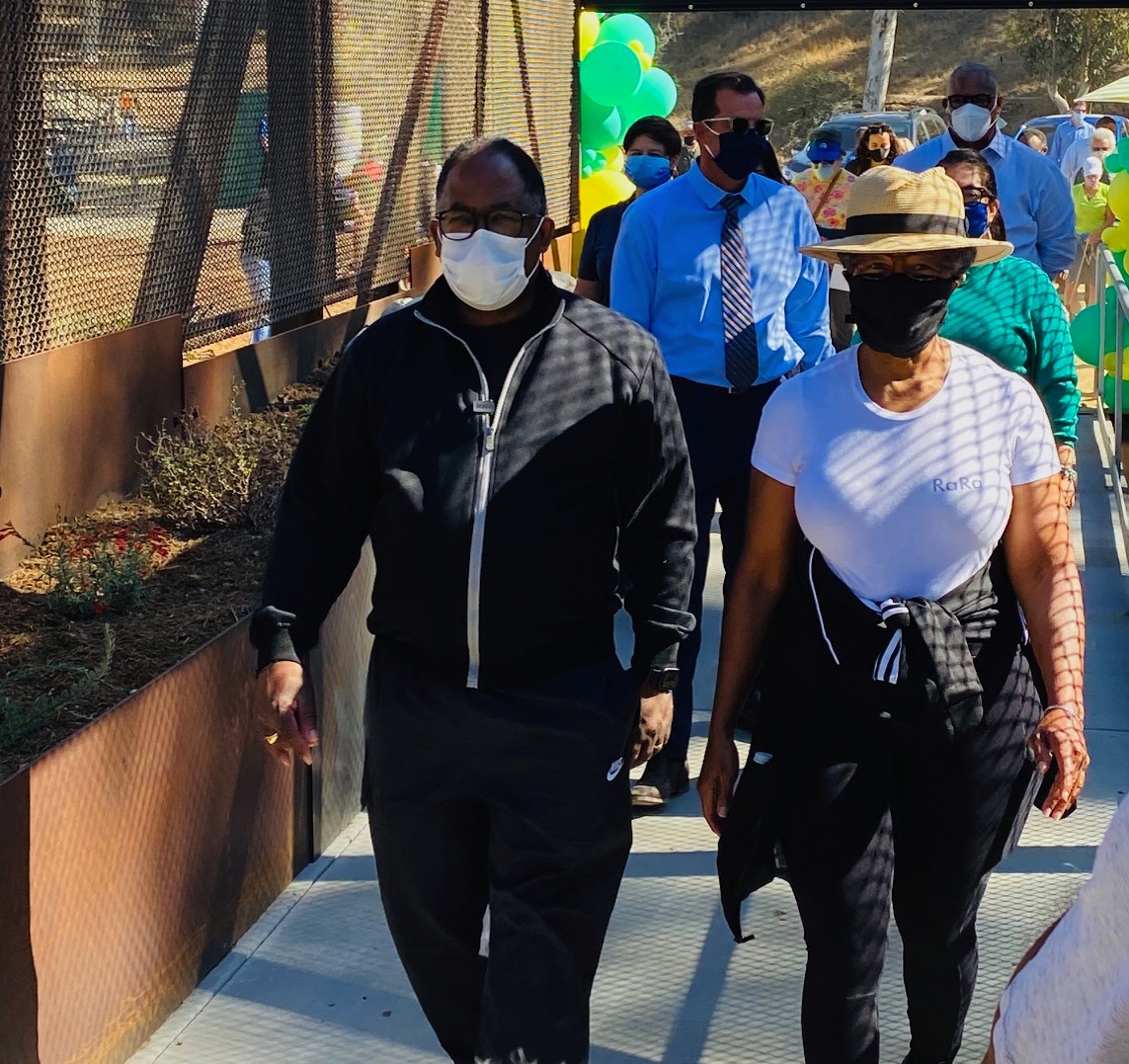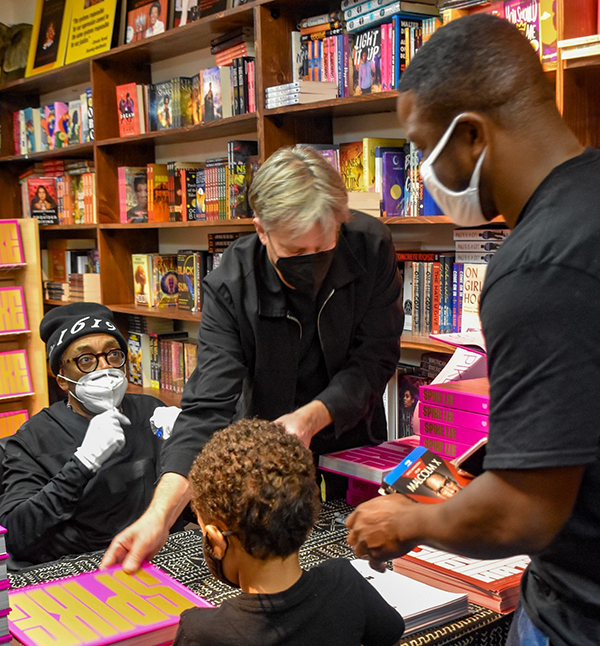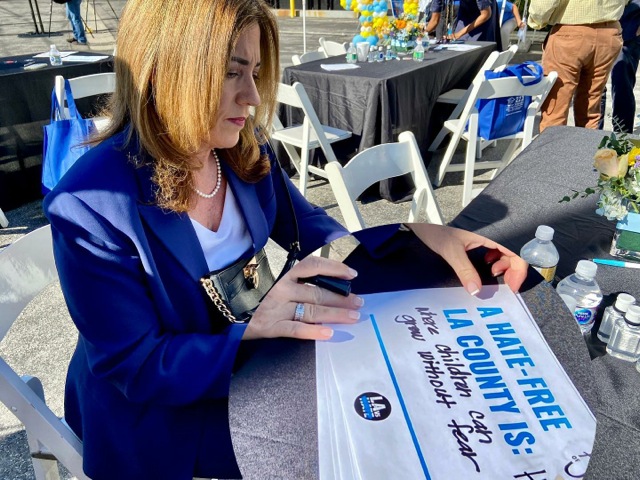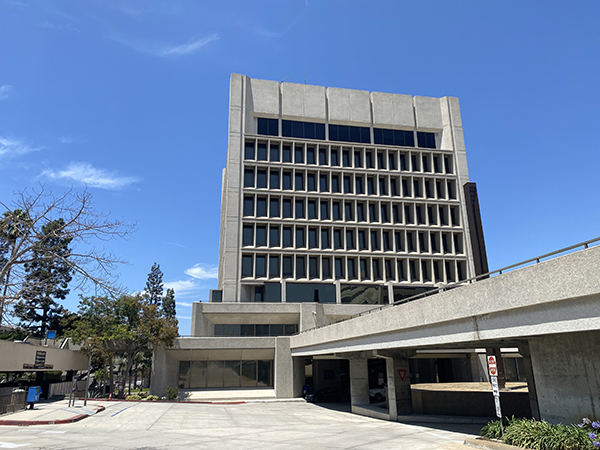South LA civil rights attorney Carl Douglas reflects on justice at 70

LOS ANGELES — Carl Douglas doesn’t take many days off, but on a recent birthday, he made an exception. As he looked back on more than four decades of practicing law in Los Angeles, one thread ran through it all: justice — who gets it, who doesn’t, and how the courts shape lives in ways the public rarely sees.
Douglas was raised on 109th Street and Denker Avenue in South Los Angeles during the 1960s and ’70s, a time of deep tension between police and Black communities — an environment he says shaped his path as a civil rights lawyer. He remembers a community always on edge with the police.
“You could stop someone — today even — and they’d have a story,” he said. “A family member, a friend, someone treated unfairly.”
Though Douglas says he never personally faced such treatment, he grew up surrounded by it. That proximity to injustice shaped the way he would one day fight it.
For years, Douglas served as a federal public defender, losing 35 straight jury trials before securing his first win in a bench trial.
“Whether you’re a good lawyer isn’t about wins and losses,” he said. “It’s about courage. About doing the work.”
Most know Douglas as one of the attorneys in the O.J. Simpson murder trial in 1995. But some of the cases that stayed with him never made front pages.
He once defended a man accused of two separate bank robberies. His client admitted to one, not the other. The photographs didn’t match. Hairlines were different — details Douglas tried to make the jury see.
“He still got convicted of both,” Douglas said. “That one stuck with me.”
His definition of success was never about headlines.
“As a young lawyer, I just wanted to be the guy someone points to in court and says, ‘There goes a good lawyer.’” He laughs when recalling a recent trip to New York, where someone asked for his autograph — not because he was an athlete or entertainer, as is too often assumed of Black men in the spotlight, but because of his courtroom reputation.
Douglas is candid about the weight of being one of the few Black attorneys who operates in both grassroots and elite legal circles.
“It’s not a burden — it’s a badge of honor,” he said. “I’ve won and lost both murder trials and million-dollar verdicts. I’ve been in the biggest criminal and civil cases in American history.”
That range includes the $4.9 billion Patricia Anderson v. General Motors civil case, where a jury awarded damages to a family badly burned in a car explosion. More recently, he’s observed legal spectacles like the trial of Sean “Diddy” Combs or the prison incidents involving celebrities like Tory Lanez — reflections, he says, of how race and celebrity continue to collide in American justice.
“We love to build our icons up,” he said. “Then we watch as they tear themselves down — or get torn down.”
Even Smokey Robinson’s recent legal controversy made its way into the conversation.
“He’s being sued by a friend of mine,” Douglas said, referring to attorney John Harris. “I respect Smokey and his legacy. I hope it’s resolved fairly.”
Douglas was recently saluted at a 70th birthday party in Santa Monica. He reflected on his career.
“Maturity,” he said, “is the ability to adjust.”
It’s a mantra that carried him through the early losses. Moving from the West Coast to the East Coast as a young lawyer helped him understand the value of discomfort.
“Flexibility made me a better person — and a better lawyer.”
Despite it all, Douglas sees cameras in the courtroom as essential.
“They let people see that excellence comes in all colors,” he said. “After O.J., applications to law school from people of color rose. I still get recognized — not by fans — but by Uber drivers from around the world who watched that trial.”
These days, Douglas worries less about verdicts and more about the survival of American democracy. He says he can barely watch CNN anymore.
“Trump’s administration … it’s testing everything we thought we could count on,” he said. “When judges’ orders aren’t followed, when the rule of law is bent — that’s when I start to worry.”
He’s especially disturbed by the manipulation of legal systems — from pressuring universities to defying the authority of the courts.
“He’s doing what he said he’d do,” Douglas said. “And good people have to stand up now more than ever.”
Still, the courtroom remains a sacred place for him.
“I’ve had my share of victories and defeats,” he said. “But the fight — that’s what defines me.”
Asked to describe his legacy, Douglas paused. “A brother who spent his life trying to make life better for others,” he said. “He fought the good fight. And he tried to leave the world better than he found it.”





